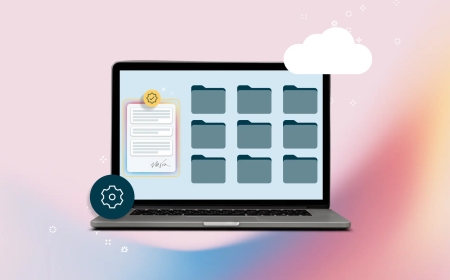Take My Class Online: Overcoming Technical Challenges in Online Learning

In the digital age, online education has transformed the landscape of learning, offering unprecedented flexibility and accessibility for students around the globe. However, this shift to virtual classrooms comes with its own set of challenges, particularly concerningTake My Online Class. From unreliable internet connections to unfamiliar learning platforms, students must navigate a myriad of technical hurdles to succeed in their online courses. This article will explore common technical challenges faced by online learners and provide practical strategies for overcoming these obstacles to ensure a smooth and effective learning experience.
Understanding Common Technical Challenges
Before diving into solutions, its essential to identify the technical challenges that can arise during online learning:
-
Unreliable Internet Connection: A stable internet connection is crucial for online classes, yet many students may experience interruptions or slow speeds, particularly in rural or underserved areas. This unreliability can hinder participation in live lectures and access to course materials.
-
Familiarity with Learning Platforms: Online courses often utilize various learning management systems (LMS) such as Blackboard, Canvas, or Moodle. Students may struggle with navigating these platforms, which can lead to confusion and frustration, particularly for those who are less tech-savvy.
-
Technical Glitches and Software Issues: From software crashes to compatibility issues with devices, technical glitches can disrupt learning and create unnecessary stress. Students may find themselves unable to submit assignments or access important resources due to these problems.
-
Digital Literacy Gaps: Not all students possess the same level of digital literacy. Some may struggle with basic skills such as using email, navigating online forums, or utilizing collaboration tools, which can impede their ability to fully engage in online courses.
-
Cybersecurity Concerns: With the rise of online education, cybersecurity has become a pressing concern. Students may encounter phishing scams, malware, or other security threats that can compromise their personal information and academic integrity.
Strategies for Overcoming Technical Challenges
To thrive in an online learning environment, students must develop strategies to overcome these technical challenges. Here are several actionable tips:
-
Ensure Reliable Internet Access
A stable internet connection is vital for online learning. Here are some tips to ensure reliable access:
-
Test Your Connection: Before the semester begins, conduct speed tests using online tools like Speedtest.net to check your internet speed. This will help you determine whether your connection is sufficient for streaming lectures and downloading materials.
-
Upgrade Your Internet Plan: If you consistently experience slow speeds or interruptions, consider upgrading your internet plan or switching providers. Many service providers offer plans tailored for students that provide faster speeds at competitive prices.
-
Use a Wired Connection: Whenever possible, use a wired Ethernet connection instead of relying on Wi-Fi. Wired connections tend to be more stable and can significantly improve internet speed and reliability during online classes.
-
Create a Backup Plan: In case of internet outages, have a backup plan. This could include using a mobile hotspot, finding a nearby caf with free Wi-Fi, or accessing your schools resources from a location with stable internet.
-
Familiarize Yourself with Learning Platforms
Understanding how to navigate your learning platform is crucial for success in online courses. Here are some strategies for mastering these systems:
-
Explore Before Classes Start: Take the time to explore the LMS before classes commence. Familiarize yourself with features such as the syllabus, assignment submissions, discussion boards, and grading systems. This proactive approach will make you more comfortable when classes begin.
-
Attend Orientation Sessions: Many institutions offer orientation sessions for new students to learn how to use their LMS nurs fpx 4025 assessment 3. Attend these sessions to gain valuable insights and tips on navigating the platform.
-
Utilize Help Resources: Most learning platforms come with help sections or tutorials. Dont hesitate to utilize these resources if you encounter difficulties. Additionally, reach out to your institution's IT support if you have specific questions or need assistance.
-
Troubleshoot Technical Issues
When technical issues arise, its essential to know how to troubleshoot effectively. Here are some tips to resolve common problems:
-
Keep Software Updated: Ensure that your operating system, browser, and any relevant software are up to date. Software updates often include security patches and performance improvements that can enhance your learning experience.
-
Clear Cache and Cookies: If you experience slow loading times or issues with online tools, try clearing your browsers cache and cookies. This simple step can resolve various issues related to web applications.
-
Restart Your Device: If you encounter technical glitches, a quick restart of your computer or device can often resolve minor software issues and improve performance.
-
Use Compatible Devices: Check the system requirements for the learning platform and ensure that your device meets these specifications. If possible, use devices recommended by your institution for optimal performance.
-
Develop Digital Literacy Skills
Improving your digital literacy can enhance your online learning experience. Here are ways to develop these skills:
-
Take Online Courses: Many platforms offer free or low-cost courses on digital literacy topics. Consider enrolling in courses that cover essential skills, such as using productivity software, navigating online communication tools, or managing files in the cloud.
-
Practice Regularly: The more you use technology, the more comfortable you will become. Take time to practice using different tools and applications, such as video conferencing software (e.g., Zoom, Microsoft Teams) and collaboration platforms (e.g., Google Drive, Slack).
-
Seek Help from Peers: If you have friends or classmates who are more tech-savvy, dont hesitate to ask for help. They can provide valuable tips and tricks for navigating online learning tools and platforms.
-
Prioritize Cybersecurity
Maintaining cybersecurity is essential for protecting your personal information and academic integrity. Here are some tips for enhancing your cybersecurity awareness:
-
Use Strong Passwords: Create strong, unique passwords for your accounts and change them regularly. Avoid using easily guessable information, such as birthdays or common phrases.
-
Enable Two-Factor Authentication: Whenever possible, enable two-factor authentication (2FA) on your accounts. This additional layer of security requires a second form of verification, making it more challenging for unauthorized users to access your accounts.
-
Stay Informed about Phishing Scams: Be cautious of emails or messages that request personal information or contain suspicious links. Familiarize yourself with common phishing tactics and report any suspicious communications to your institution.
-
Use Secure Networks: Avoid accessing sensitive information or conducting online transactions over public Wi-Fi networks. If necessary, use a virtual private network (VPN) to encrypt your internet connection and protect your data.
-
Communicate with Instructors and Support Services
Open communication with instructors and support services can enhance your online learning experience. Here are some strategies for effective communication:
-
Reach Out for Help: If you encounter technical issues that impact your ability to complete assignments or participate in classes, reach out to your instructors for assistance. They may be able to provide accommodations or alternative solutions.
-
Utilize Technical Support: Most institutions have dedicated IT support services to assist students with technical challenges. Dont hesitate to reach out to these resources for help with software issues, login nurs fpx 4035 assessment 1, or navigating the LMS.
-
Participate in Online Forums: Engage with discussion forums or community boards to share experiences and seek advice from classmates. These platforms can provide valuable insights and support from peers facing similar challenges.
-
Stay Organized
Staying organized is crucial for managing technical challenges effectively. Here are some tips for maintaining organization:
-
Keep a Digital Calendar: Use a digital calendar to track important deadlines, class schedules, and assignments. Sync your calendar with your phone to receive reminders and notifications.
-
Organize Files and Documents: Create a systematic file organization system for your digital materials. Use folders to categorize documents, assignments, and resources related to each course for easy access.
-
Set Reminders for Software Updates: Schedule regular reminders to check for software updates on your devices. Staying up to date with the latest versions can help prevent compatibility issues.
-
Engage in Continuous Learning
The digital landscape is constantly evolving, making it essential to engage in continuous learning to stay ahead. Here are some strategies for ongoing development:
-
Follow Technology Trends: Stay informed about new tools, applications, and trends in online education. Subscribing to relevant blogs, podcasts, or newsletters can provide valuable insights and updates.
-
Join Online Learning Communities: Participate in online forums or social media groups focused on online education. Engaging with these communities can provide support, resources, and opportunities to share experiences with fellow learners.
-
Attend Workshops and Webinars: Many educational institutions and organizations offer workshops or webinars on various technology-related topics. Take advantage of these opportunities to enhance your skills and knowledge.
-
Practice Self-Care
Dealing with technical challenges can be stressful, and its essential to prioritize self-care. Here are some tips for maintaining well-being during your online learning journey:
-
Take Breaks: Regular breaks during study sessions can help alleviate stress and improve focus. Consider incorporating short breaks every hour to recharge your mind.
-
Practice Mindfulness: Engaging in mindfulness practices, such as meditation or deep breathing exercises, can help reduce anxiety and improve concentration. Consider incorporating these practices into your daily routine.
-
Stay Connected with Peers: Social connections can provide emotional support during challenging times. Make an effort to stay in touch with classmates and friends, even if its through virtual channels.
-
Embrace a Positive Mindset
Maintaining a positive mindset can significantly impact your ability to overcome technical challenges. Here are some strategies to foster positivity:
-
Focus on Solutions: When faced with technical difficulties, shift your focus from the problem to finding solutions. This proactive approach can help you stay motivated and resilient.
-
Celebrate Small Wins: Acknowledge and celebrate small achievements, such as completing an assignment or mastering a new tool
. Recognizing your progress can boost your confidence and motivation.
-
Visualize Success: Take time to visualize your goals and the successful outcomes of your online learning experience. This practice can enhance your motivation and commitment to overcoming challenges.
Conclusion
While technical challenges in online learning can be daunting, they are not insurmountable. By taking proactive steps to ensure reliable internet access, familiarizing yourself with learning platforms, troubleshooting issues, enhancing digital literacy, prioritizing cybersecurity, communicating effectively, staying organized, engaging in continuous nurs fpx 4000 assessment 2, practicing self-care, and maintaining a positive mindset, you can overcome these hurdles and succeed in your online education journey. Embrace the flexibility and opportunities that online learning offers, and empower yourself to thrive in this dynamic and evolving educational landscape. As you navigate your online courses, remember that you are not alone; support is available, and with determination and resilience, you can achieve your academic goals.

































